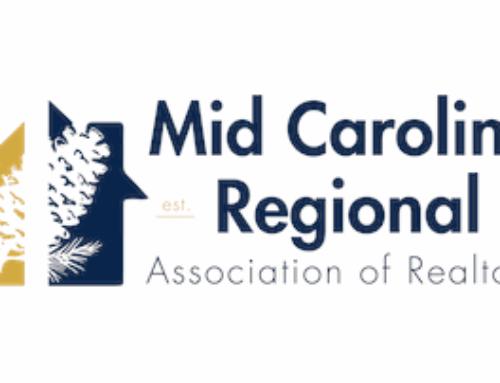 The California Association of REALTORS® deserves recognition for solving one of the most significant pain points in real estate – digital forms management. When the real estate industry began the slow conversion from paper transactions to digital transactions, California led the way with the creation of a for-profit company that became zipLogix. Along the way, the National Association of REALTORS® joined CAR as an investor.
The California Association of REALTORS® deserves recognition for solving one of the most significant pain points in real estate – digital forms management. When the real estate industry began the slow conversion from paper transactions to digital transactions, California led the way with the creation of a for-profit company that became zipLogix. Along the way, the National Association of REALTORS® joined CAR as an investor.
The counterpoint to zipLogix was Instanet. Across America, realtor associations offered one or the other – Instanet forms or zipforms, along with a number of markets offering DotLoop or Form Simplicity. WAV Group has worked with countless numbers of Associations and MLSs to evaluate these solutions over the years before NAR® and CAR® launched with a plan to disrupt this product group across the industry. They made the bold move of making zipLogix a member benefit whereby NAR members would pay for this member benefit through NAR dues. This move compelled local and state boards and MLSs across the nation to determine if they would continue to pay Instanet, Form Simplicity, or DotLoop or switch to zipLogix and pay nothing.
Today, we know the long game that NAR was playing when they made zipLogix a member benefit. NAR and CAR were not only trying to create efficiency and reduce costs for Realtors, they were also collaborating to “package” the company for sale – which they successfully did to Lone Wolf who owns both zipLogix and Instanet; who have dominant market share in the forms business across America and Canada. The agreement between zipLogix and NAR have a term which lasts through 2022; that agreement passed to Lone Wolf during the change in control – this is where it gets interesting.
NAR Board of Directors had indicated that they will not renew the zipLogix agreement as a member benefit.
The ripple effect of this decision by NAR returns competition to the forms marketplace. Sure, Lone Wolf has an advantage as the incumbent in the forms business. Associations and MLSs will need to bring back budget to pay for a digital form solution in 2022. However, competition for earning the business will be a very different landscape.
There is a trend developing in real estate whereby MLSs and Associations want serious guardrails to prevent their technology partners from being sold to certain companies. Florida Realtors®, owners of Form Simplicity jumped out with an announcement on RE Technology today that 4 State Associations have agreed to offer their solution to members – Alabama, Georgia, Oregon, and Missouri. In total, that is about 100,000 subscribers – or just under 10% of the Realtors® Nationwide. Form Simplicity is considered by many to be a “friendly” because it is owned by a Realtor Association – and they have a really nice product.
Clearly, the game is afoot. The future of forms has entered a chaos stage. The winner is in question. Lone Wolf is in the pole position, but everyone is coming after them.
Forms strategy has changed for franchises and brokerages. Rather than leverage point solutions for forms, they have stepped up to consider in-line workflow solutions. Prime examples of this include the deployment of DocuSign’s forms, transaction, and digital signature solution, or brokers’ deployment of SkySlope. Remine is becoming attractive to Associations, MLSs and Brokerages too. Also, there is nothing wrong with DotLoop other than the opinion of some that there is an issue with dotloop being owned by the national paper brokerage, Zillow Group.
Associations will control the market
Associations have a lock on forms licensing as a result of their copyright on the forms used by Realtors. This puts them in the control seat for what the market will use for forms management. As we saw in California, if the State Association does not license forms to a technology company (CAR vs. dotloop), the forms product may not use the forms. When Crye-Leike launched SkySlope across their 8-state coverage area, their agents in one state were knocked out of using SkySlope because the Association refused to license the forms to the brokerage or their vendor.
My hope for the industry is that Associations will follow the example of Texas Realtors®. They carefully evaluate the security of forms applications, but generally have an open forms licensing program. This allows brokers or local boards or franchises to use a variety of forms applications. They have created an open and competitive market. It drives innovation too.
Compass may illustrate the best path forward for large firms
Compass appears to be taking a very interesting approach to forms management. Compass seems to be pursuing an open solution that support whatever forms product is offered by the Association, but tightly integrated into their workflow and proprietary deal management platform. In this regard, Compass is supporting the local market but is intensely focused on data management over application management. Agents can use a Compass application or the Association/MLS option but the meta data on the forms is extracted for use by the agent and the brokerage in other applications – making the data from the forms available in an agent’s CRM, accounting, compliance, analytics, etc.
Some things for Associations and MLSs to think about when licensing forms
- Support single sign on to allow agents to easily connect to the application from other solutions
- Connect the forms to data – both property records and customer records via API to reduce manual entry
- Require that forms providers provide APIs to enable companies to extract the meta data from the forms and to power other applications
- Demand a notification engine that allows brokerage solutions to talk to other brokerage solutions when they are managing different sides of a transaction. (Some MLSs are collaborating on this solution along with RESO).
- Deliver an identity management solution that electronically validates agent permissions for forms access (NRDS or other Association Membership authentication solution).
- Allow competition in the marketplace by inviting brokers to license forms for whatever application suits them as long as it is secure and members are verified.
Need Help?
As boards wrestle with their forms strategy, WAV Group can help. On the simplest of measures, share this article with your leadership. If you would like, we can Zoom with your board and provide an overview. We are also available to facilitate an RFI/RFP for vendor selection. Contact Marilyn Wilson, Victor Lund, or David Gumpper for help with any of these.




